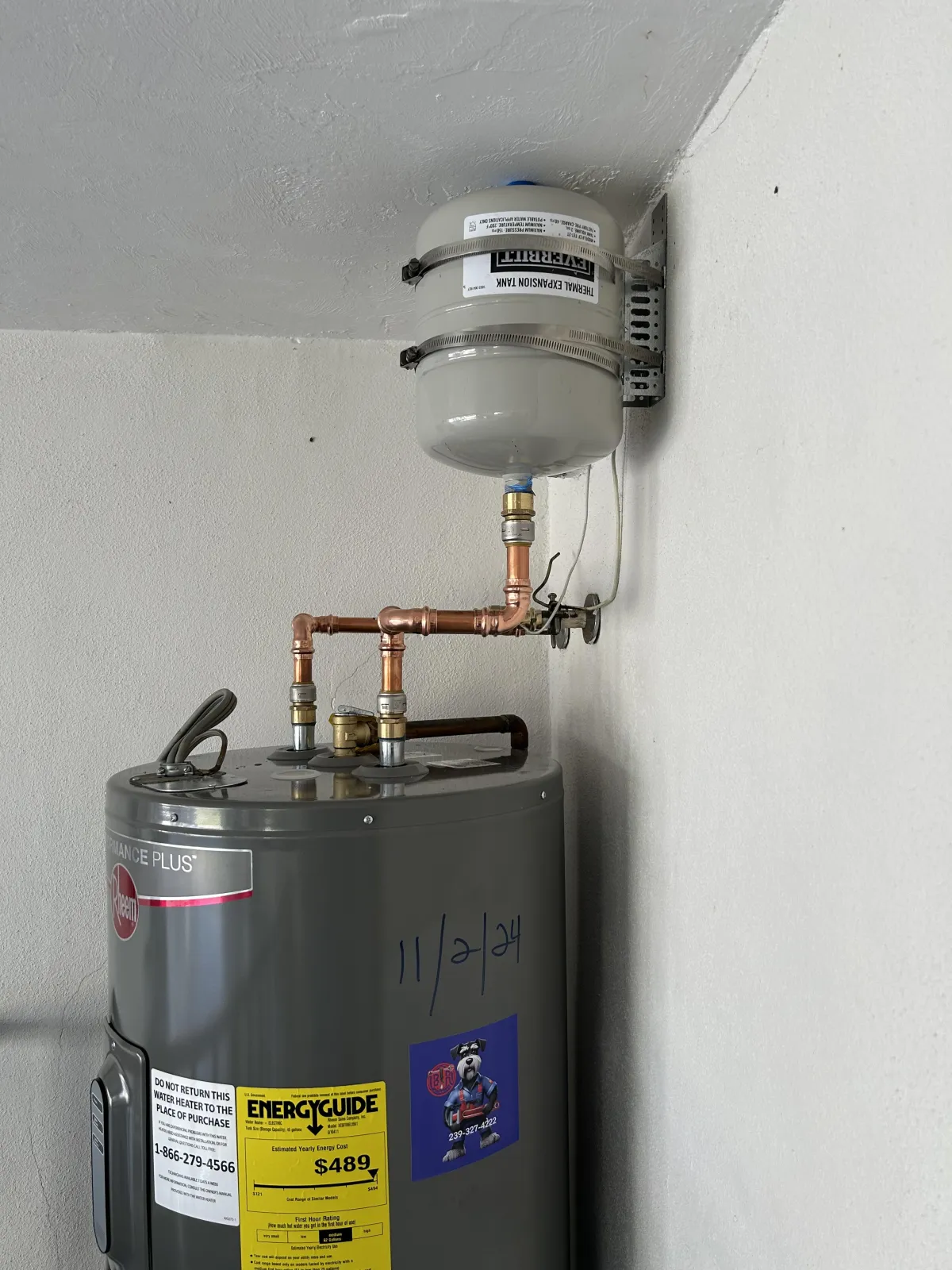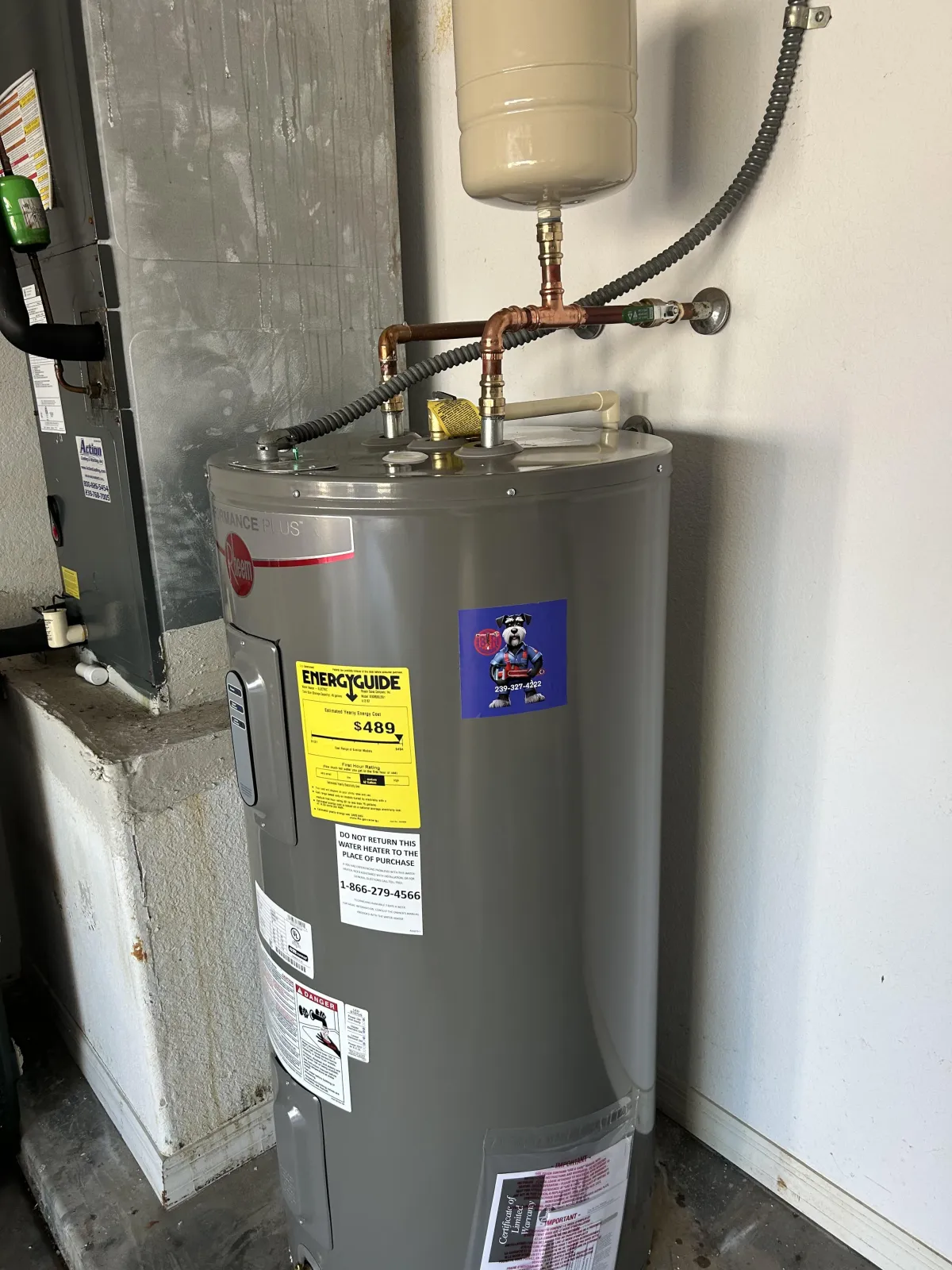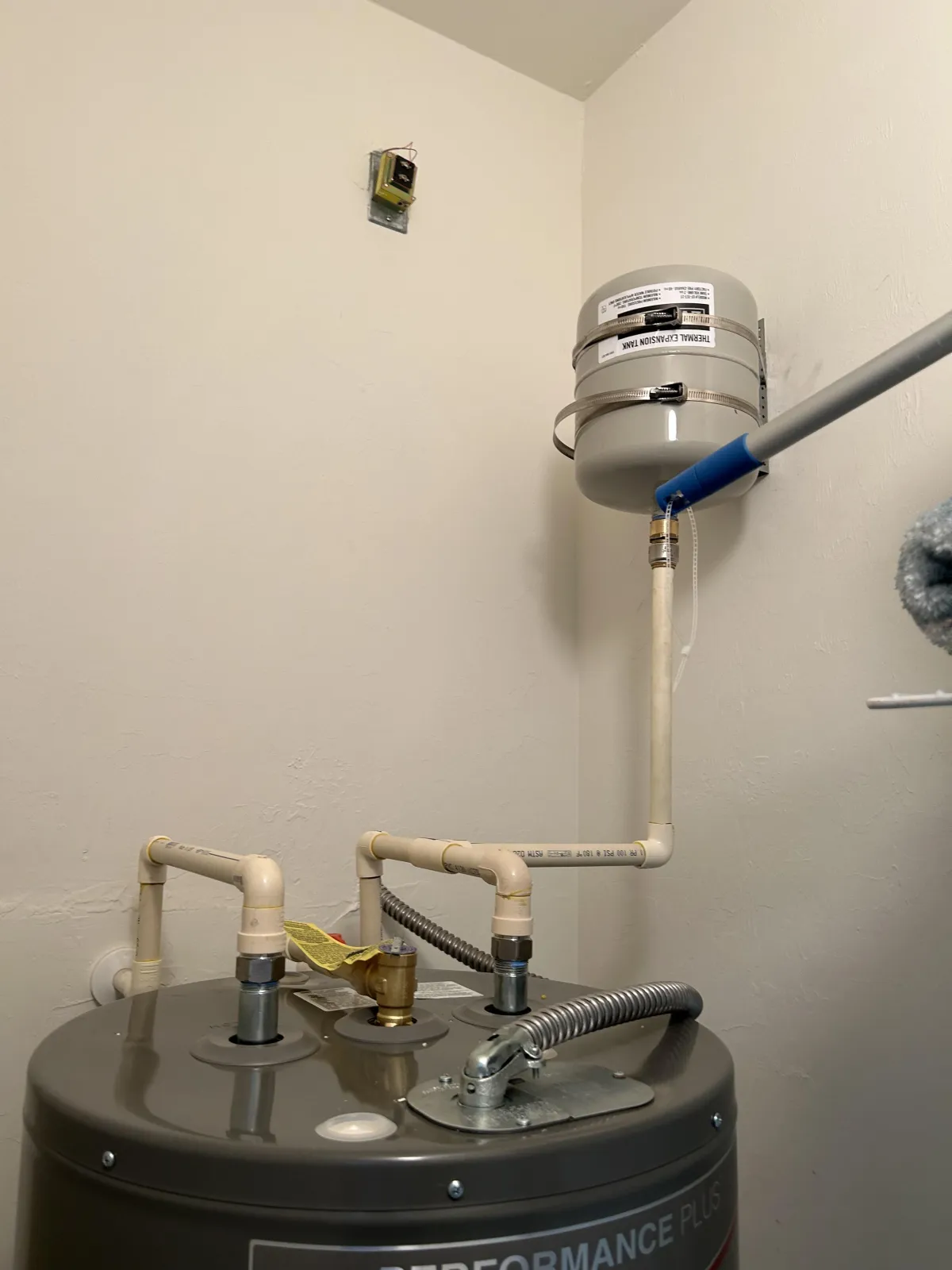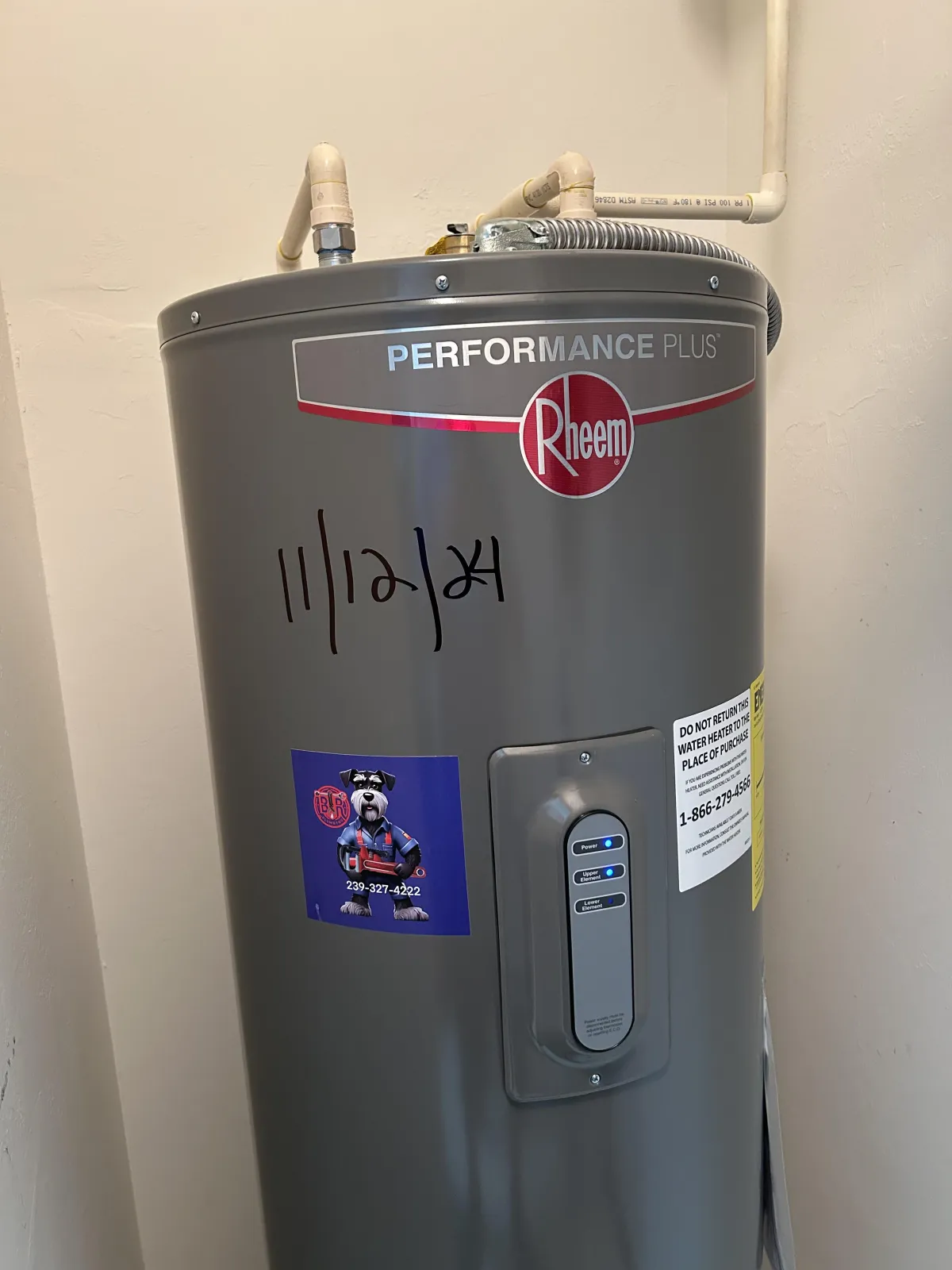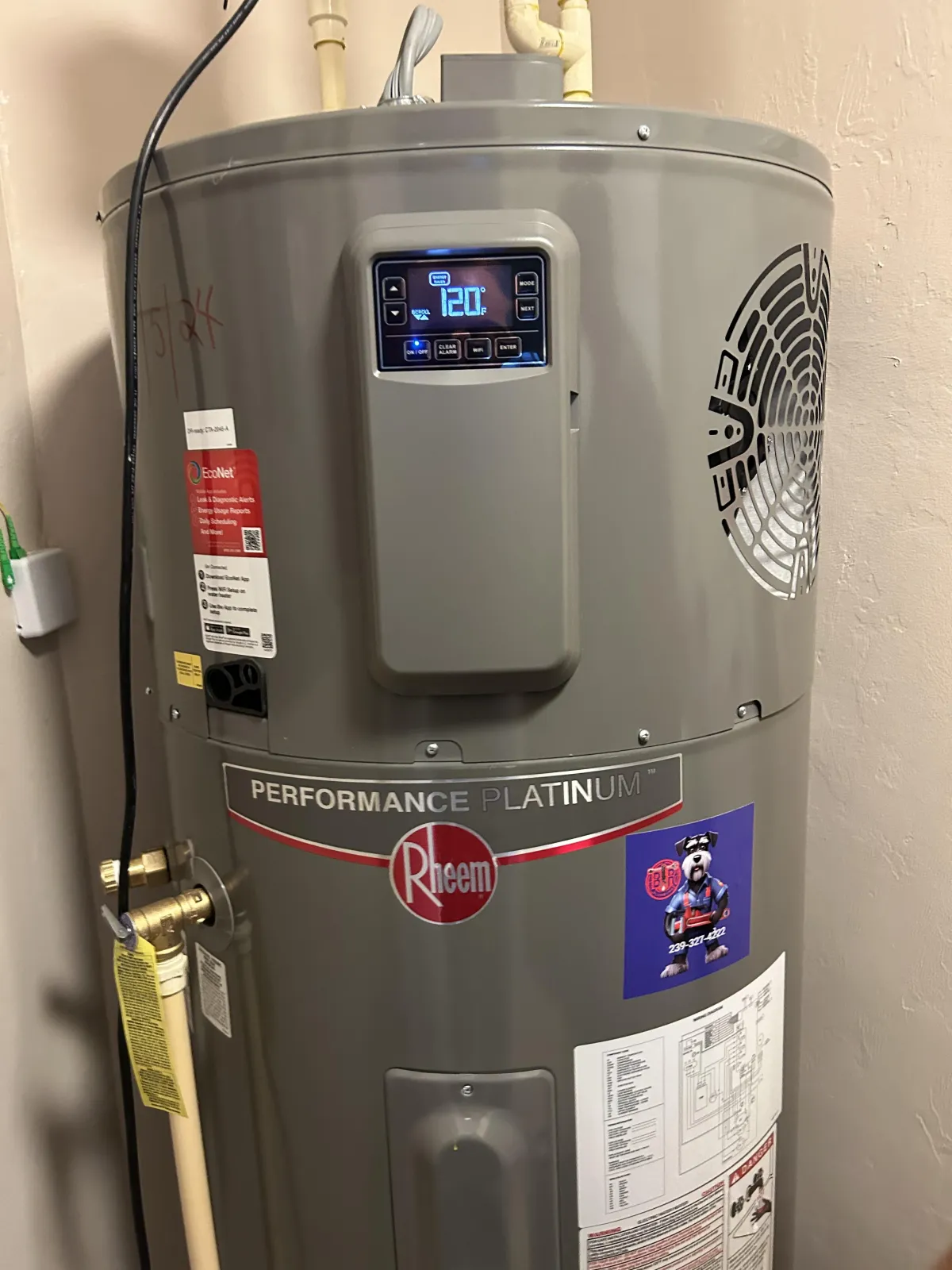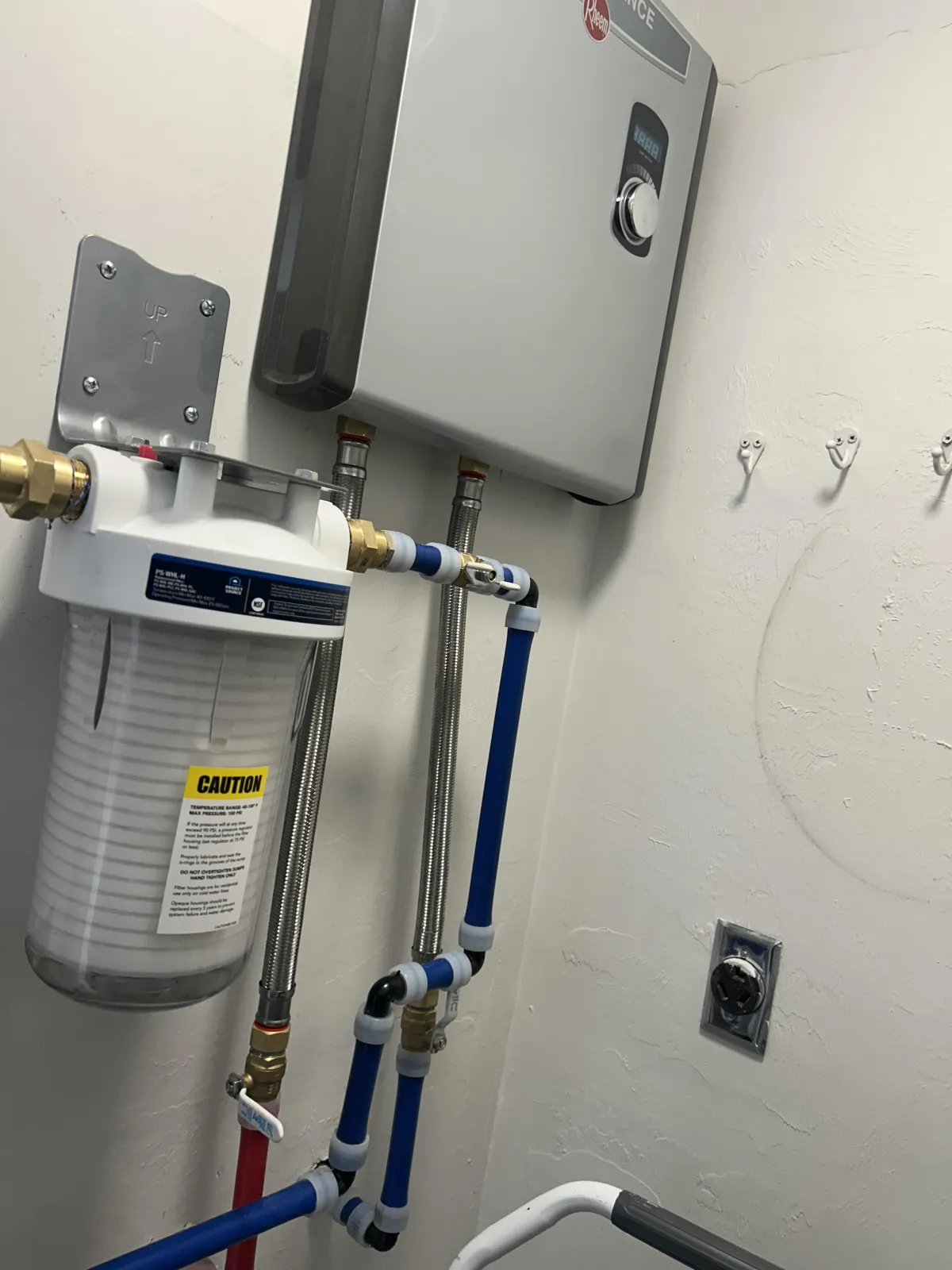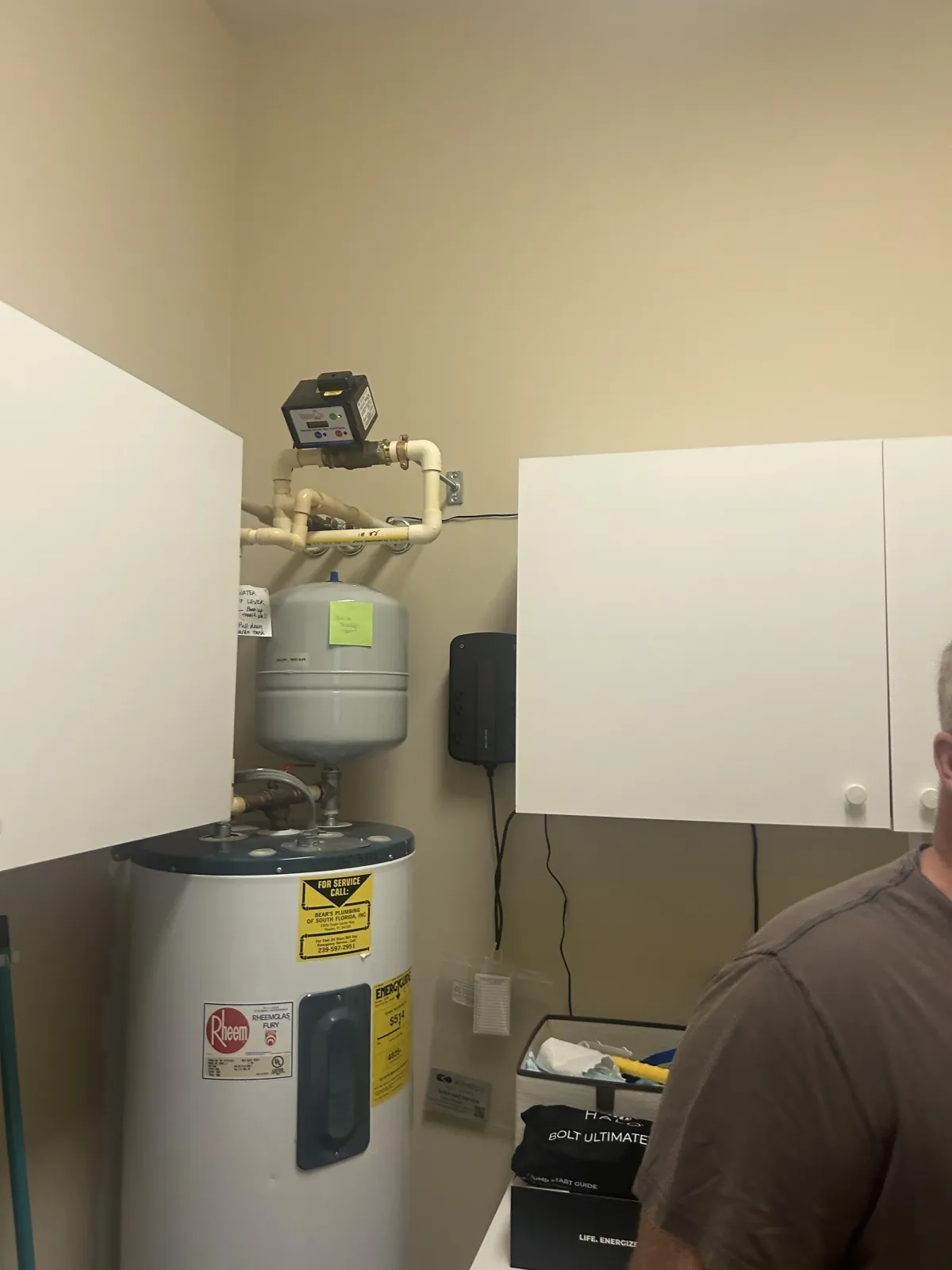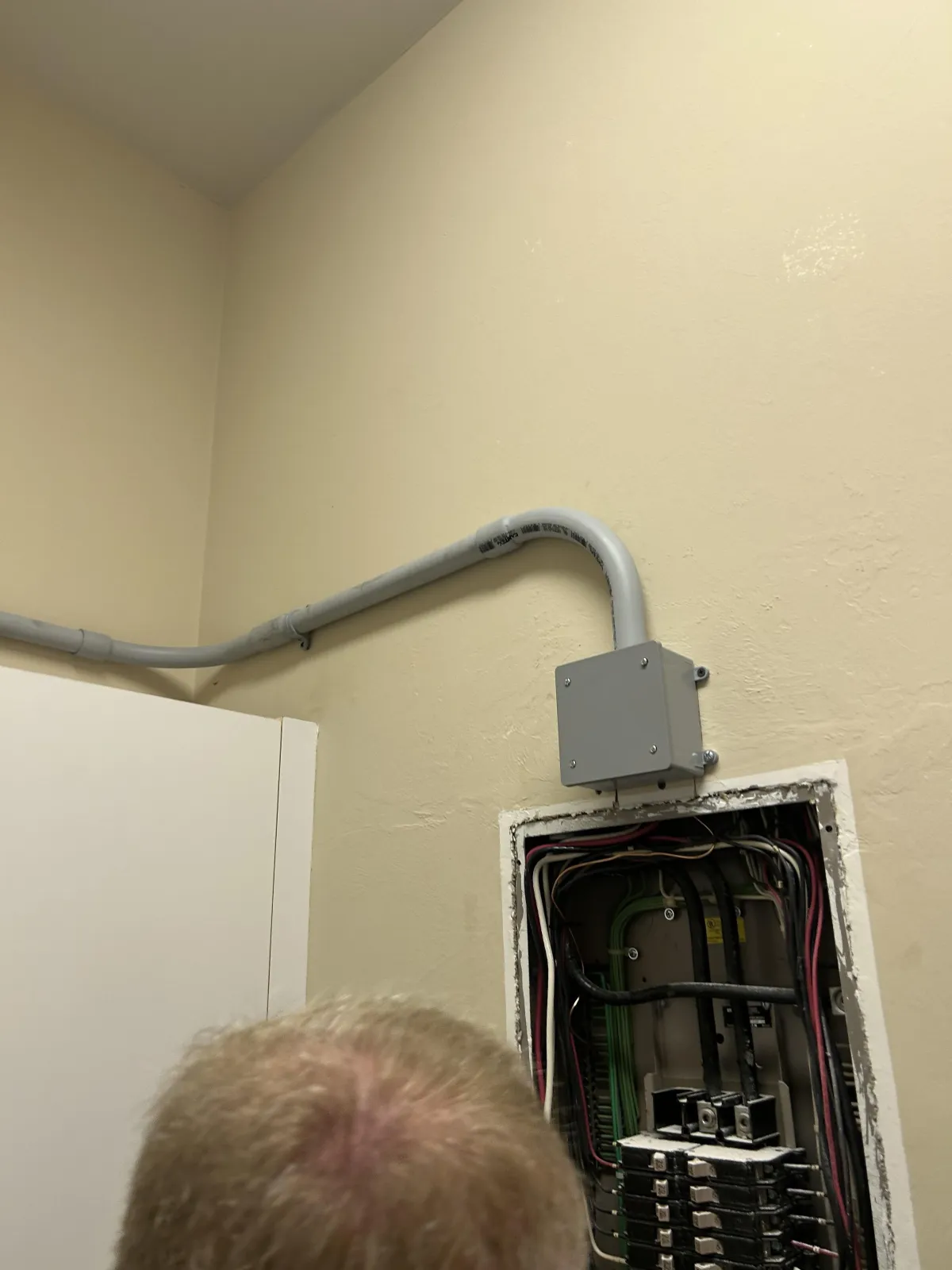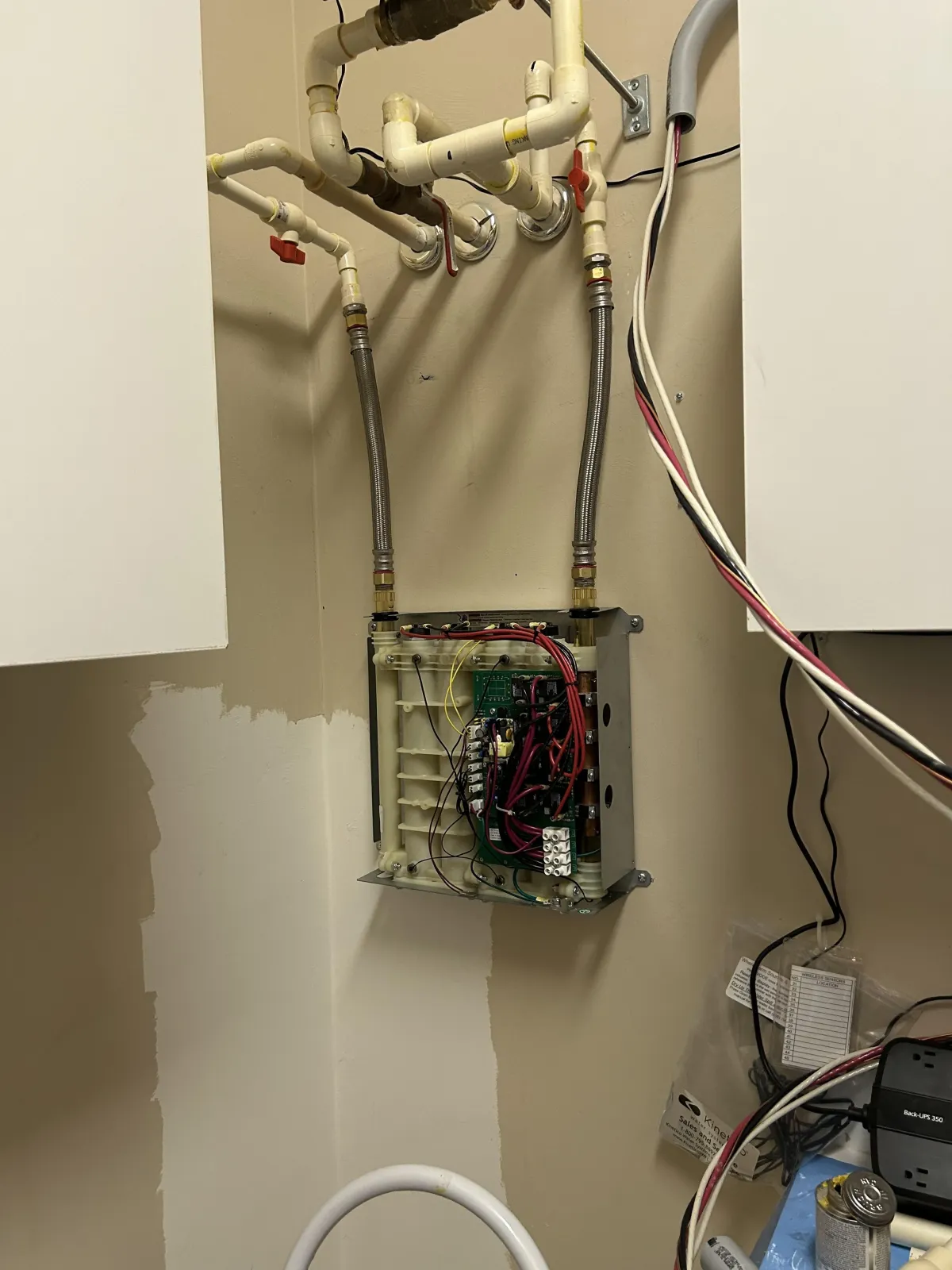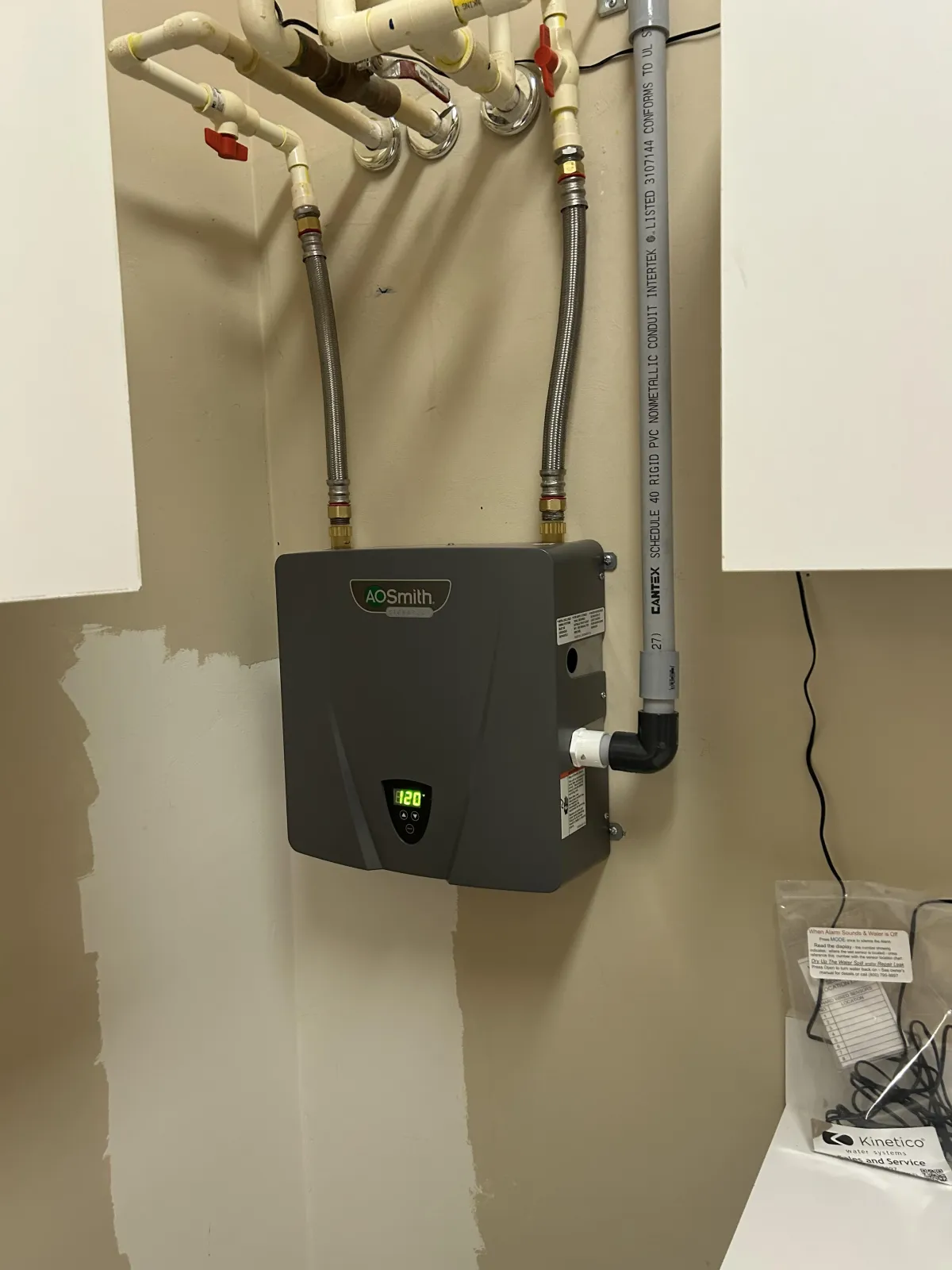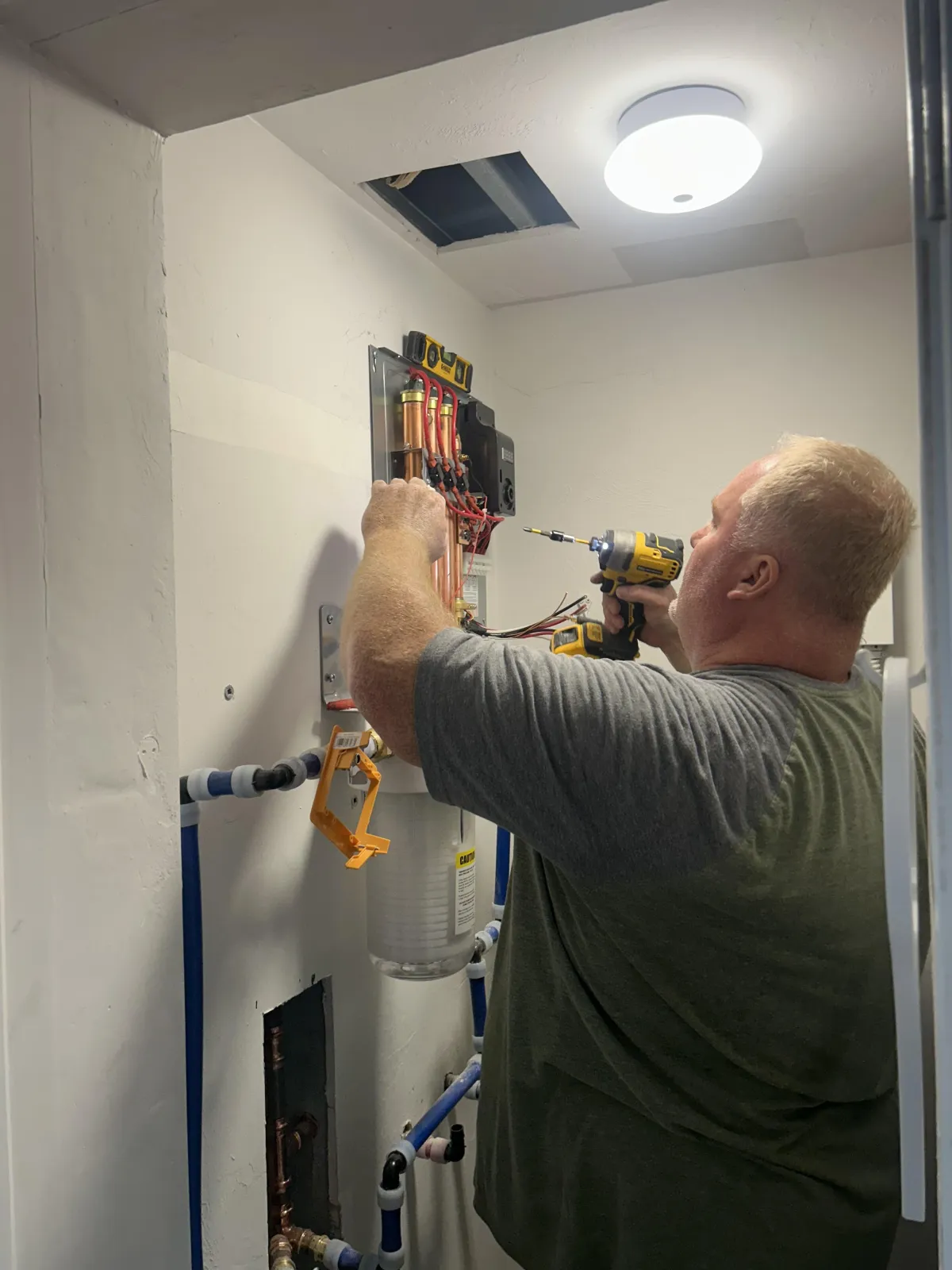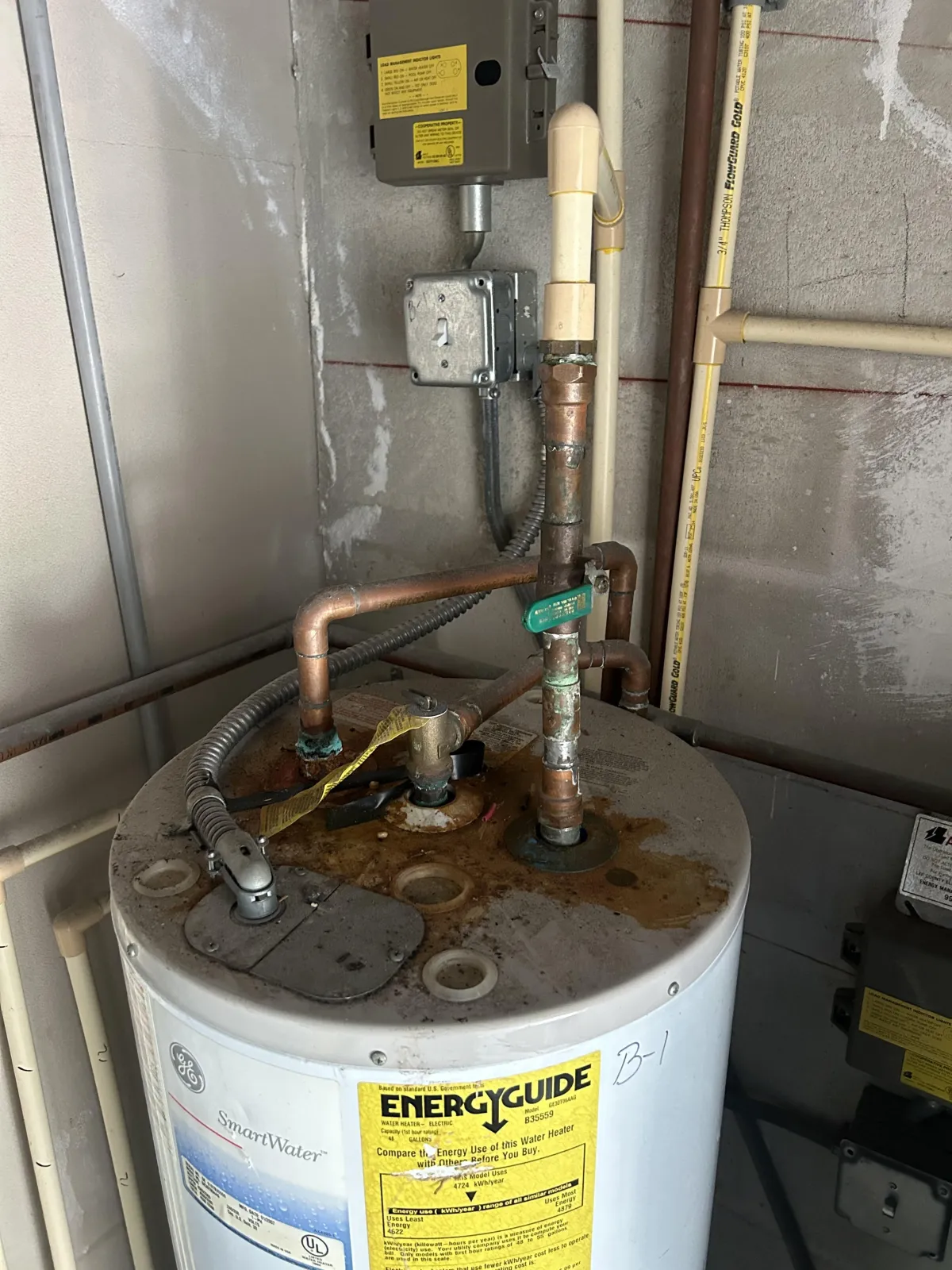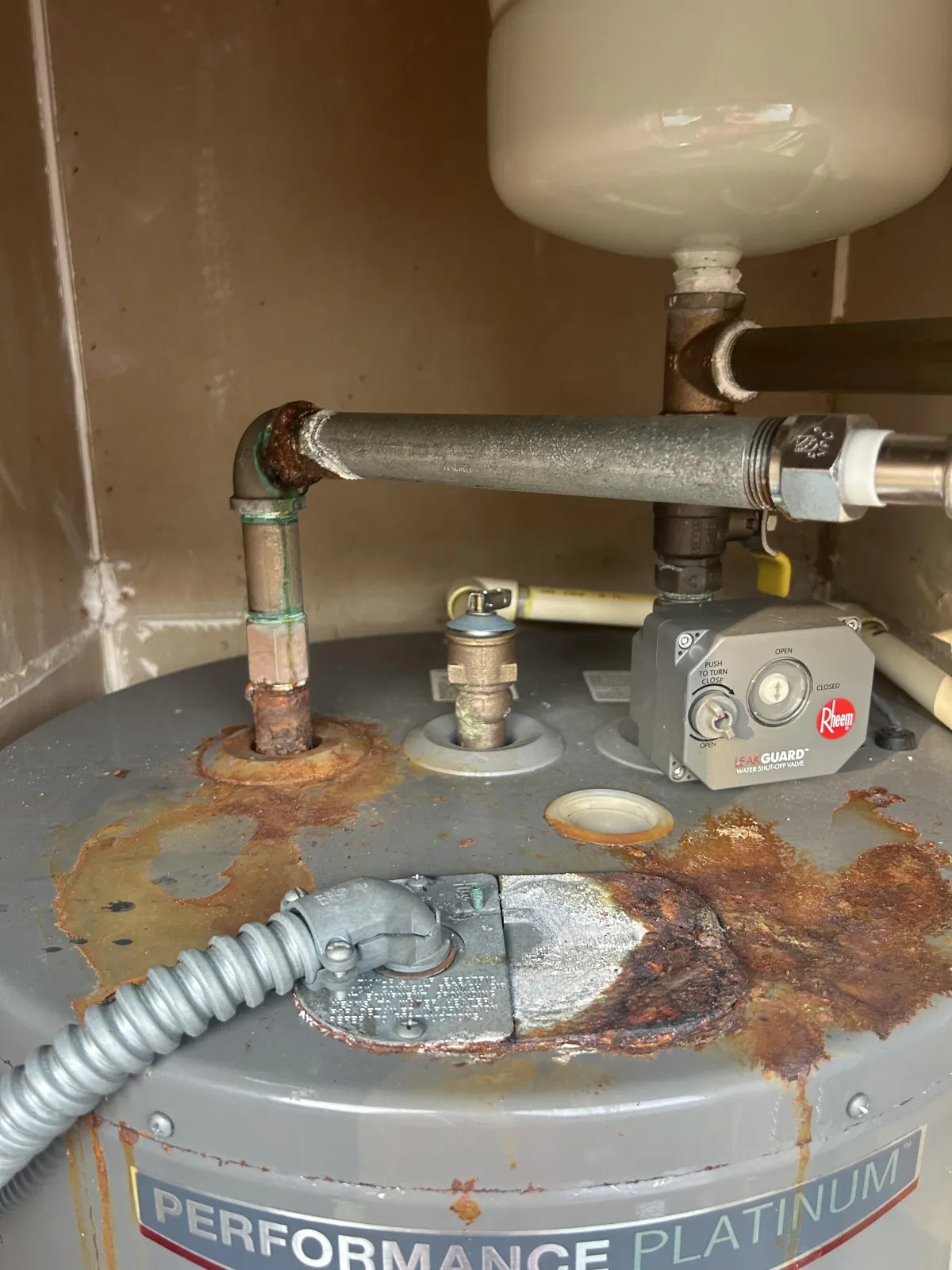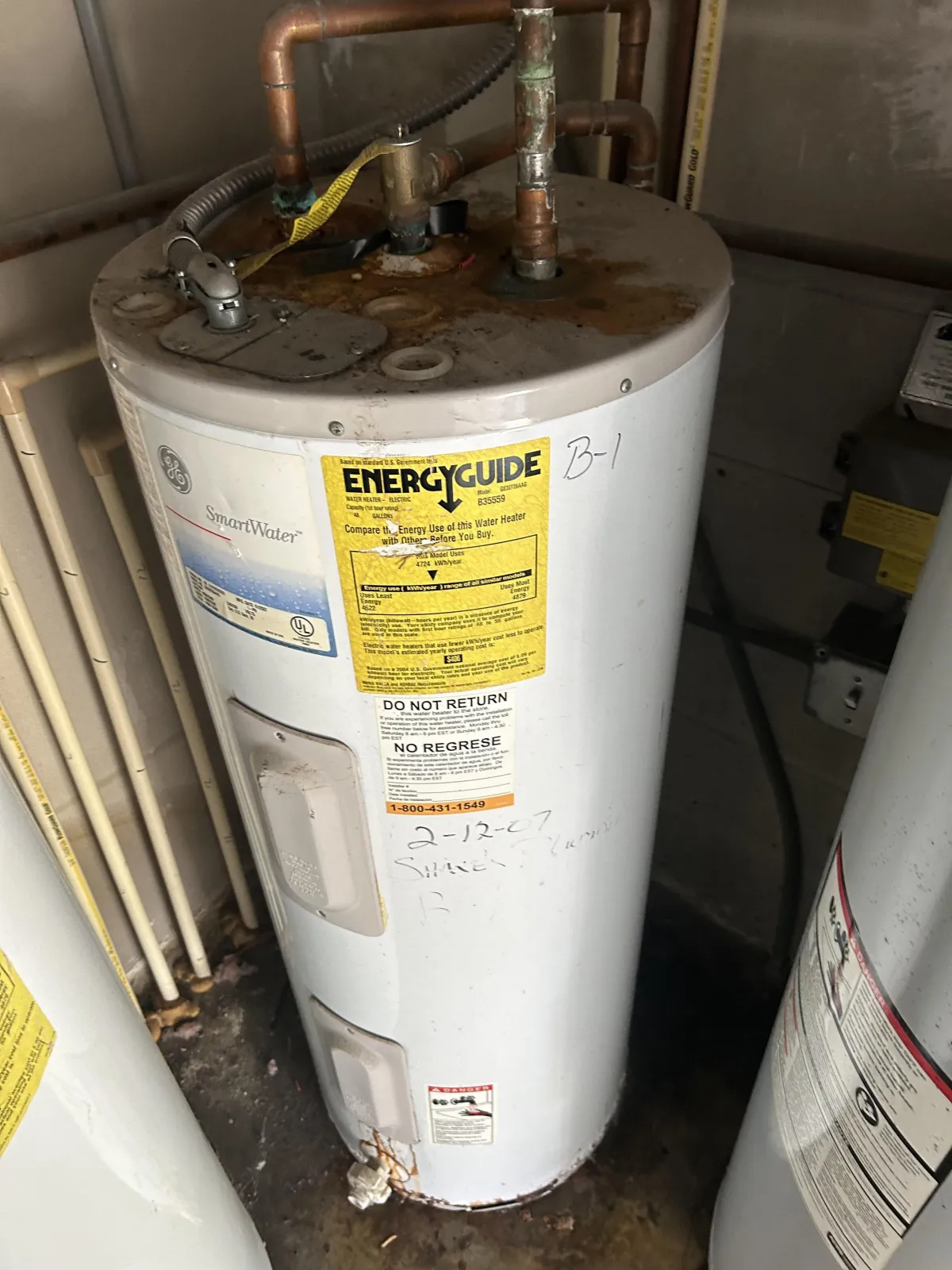Water Heater Installation I Cape Coral to Naples
B & R Plumbing
Service Offerings
Water Heater Repair & Installation, Promise to beat any estimates, Fast and Reliable Service No hidden fees Top-quality service, Quick response time, Same day emergency services
• •
Discounts for military veterans
Servicing
North Fort Myers, Cape Coral, Fort Myers, Estero, Bonita Springs, North Naples
How to Prevent Plumbing Emergencies Related to Water Heaters
Avoiding unexpected plumbing issues with your water heater begins with proactive steps and mindful decisions. Here's how you can keep things running smoothly:
Regular Maintenance: Schedule routine inspections with a professional plumber. Regular check-ups ensure any minor issues are addressed before becoming major problems. Monitor for Signs of Trouble: Pay attention to unusual noises, inconsistent water temperatures, or decreased water pressure. Early detection can prevent small issues from escalating. Flush the Tank Annually: Sediment build-up in the water heater can lead to inefficiencies and potential breakdowns. Flushing the tank once a year can help maintain optimal performance and extend the life of your unit.Install a Leak Detector: Consider installing a smart leak detector, like those from Honeywell or Flo by Moen. These devices can alert you to potential leaks before they turn into flooding emergencies. Check Water Pressure: Excessive water pressure can cause undue stress on your water heater and plumbing system. Make sure the pressure remains around 60-80 PSI to avoid damage.
By taking these preventive measures, you can significantly reduce the risk of experiencing a plumbing emergency related to your water heater. A little foresight goes a long way in ensuring hassle-free hot water for your home.
Don't let this be you!
What to Expect During a Water Heater Installation Process
When you're getting ready for a water heater installation, understanding the process can make the experience smoother. Here’s a step-by-step guide on what to anticipate:
1. Initial Assessment
The journey begins with an assessment to understand your specific needs. A professional evaluates your current system and hot water usage. This helps in recommending the most suitable options tailored to fit your household.
2. Choosing the Right Size
The sizing of the water heater is pivotal. An assessment is conducted to ensure the new heater meets your home’s demands without being oversized or undersized, enhancing efficiency and cost-effectiveness.
3. Selecting a Model
With numerous models available, you'll need to decide between traditional tank systems and tankless varieties. Experts provide insights into the energy efficiency and long-term savings of each, allowing you to make a well-informed choice.
4. Removal of Old Equipment
Once a model is chosen, the old unit is carefully removed. Professionals handle the disposal, including the safe management of any sediments or residues, ensuring minimal disruption to your home.
5. Installation
During installation, technicians take charge of fitting the new system, including any necessary modifications. If converting from electric to gas or vice versa, they ensure a seamless transition.
6. Final Checks and Tips
After installation, a thorough check of the new system ensures everything functions optimally. You'll receive maintenance tips and advice on prolonging the system’s lifespan and optimizing its performance.
With these steps, you can expect a streamlined and efficient installation process, leading to reliable hot water and enhanced home comfort.
How to Prepare for Your Water Heater Installation
Getting ready for a water heater installation can seem daunting, but with a few straightforward steps, you can ensure the process goes off without a hitch.
1. Organize and Clear the Space
Start by tidying up the area where your new water heater will be installed. Ensure there’s enough space for technicians to move freely, and remove any items or clutter that might be in the way. A clear workspace helps the installer work efficiently and securely.
2. Research Your Water Heater Options
It’s beneficial to familiarize yourself with the different types of water heaters available on the market. Consider energy-efficient models, such as tankless or hybrid options, which might suit your household’s needs. This background knowledge will empower you to make a quicker, more informed decision when the time comes.
3. Investigate Available Rebates and Incentives
Before the installation, check if there are any rebates or incentives offered by local utility providers or government programs for installing energy-saving appliances. Brands like Rheem or AO Smith often partner with such initiatives, potentially lowering your upfront costs and offering savings in the long term.
By taking these steps, you're not only preparing for a smooth installation but also setting yourself up for a more efficient and cost-effective solution.
Fill Out Form
When Should You Consider Replacing Your Water Heater?
Is your water heater giving you trouble? Knowing when to replace it can save you time, money, and a lot of cold showers. Here are some signs indicating it's time for an upgrade:
Low Water Pressure a noticeable drop in water pressure could signal sediment build-up or internal issues. This not only affects your shower experience but can also strain the system over time. Leaks and Water Puddles, if you find water pooling around your water heater, it might be leaking. Small leaks can quickly become large, leading to potential water damage. It's wise to act promptly. Fluctuating Water Temperature, does your water temperature swing from icy to scalding without warning? Inconsistent temperatures might mean your thermostat is failing, or the heating elements are on the fritz. Not Enough Hot Water, running out of hot water faster than usual is frustrating. If your family's needs have outgrown your current water heater's capacity, it might be time to upgrade. Consider options like energy-efficient tankless water heaters from brands like Rheem and Navien. Corrosion or Rust, inspect your water heater for any visible rust or corrosion. This is often a sign of irreparable damage and an early warning that a replacement is looming. Discolored or Rusty Water, if your hot water comes out looking rusty or discolored, the inner tank might be corroding. It's a clear signal to explore replacement options.
If any of these issues sound familiar, it's a good idea to consult a professional. Regular maintenance can extend the life of your unit, but once these symptoms appear, replacement may be the more cost-effective and reliable solution.
Understanding the Difference Between Tank and Tankless Water Heaters
When choosing between tank and tankless water heaters, it's important to understand their fundamental differences and unique benefits. Let’s dive into the details.
Tank Water Heaters
Tank water heaters, as their name implies, come with a large storage tank that holds and heats a predetermined volume of water. Here are some key points:
Storage Capacity: They can store anywhere from 20 to 80 gallons, ensuring a steady supply of hot water. Heating Consistency: These heaters maintain a constant temperature, so you have hot water ready, but once the stored water is used, you may experience a delay while the next batch heats up. Installation & Costs: Generally, they have a lower initial purchase price and easier installation. However, they could mean higher energy usage over time because they need to keep water heated even when not in immediate use.
Tankless Water Heaters
Tankless water heaters, often called on-demand units, heat water as needed instead of storing it. Here’s what sets them apart:
Energy Efficiency: Since they only activate when hot water is required, they tend to be more energy-efficient, which can lead to lower utility bills/Space Savings: With no bulky tank, these models save significant space, making them ideal for smaller homes or areas with limited installation space. Cost Considerations: Although the initial cost is higher, they generally have a longer lifespan, and the potential savings on energy bills can offset upfront expenses over time.
Choosing the Right Option for Your Needs
Usage: Consider your household’s hot water requirements. Larger families might benefit from the constant supply offered by tank models, while smaller households could appreciate a tankless heater's efficiency. Budget: Think about both initial installation costs and long-term savings. Tank models might be more budget-friendly upfront, but tankless units thrive long-term with energy savings to space availability: If space is at a premium, a tankless model might be the better fit.
Choosing between tank and tankless water heaters ultimately depends on your specific needs and circumstances. Carefully weigh the pros and cons to find the option that best suits your lifestyle and budget.
What Are the Benefits of Installing a Tankless Water Heater?
Switching to a tankless water heater offers numerous advantages, especially when compared to traditional tank-based systems. Here’s why upgrading could be a game-changer for your home or business:
Instant Hot Water on Demand
With tankless water heaters, you won’t have to wait for a tank to refill and heat. These systems provide hot water immediately and continuously, ensuring a limitless supply whenever you need it—perfect for larger families or commercial settings.
Energy Efficiency
Unlike traditional heaters that keep a full tank of water hot around the clock, tankless models only heat water as it flows through the unit. This “on-demand” heating can significantly reduce energy consumption, which could lead to lower utility bills over time.
Space-Saving Design
One of the standout features of tankless water heaters is their compact size. Without the bulky water tank, you can save valuable storage space in your home or facility and opt for flexible installation options.
Long-Lasting and Low Maintenance
Tankless water heaters often have a longer lifespan than tank models. They are less susceptible to rust and sediment buildup, which means fewer maintenance headaches and repair costs. Their design helps prevent common issues like bad odors, decreased water pressure, and bacterial growth.
Enhanced Hygiene
By eliminating the tank, you reduce the risk of sludge and bacteria buildup that can occur in traditional systems. This results in cleaner and more hygienic hot water throughout your entire system.
Professional Installation for Optimal Performance
To maximize the benefits and ensure safety, it’s essential to have your tankless water heater installed by a licensed and certified professional. This guarantees that the unit complies with local building codes and is set up for optimal performance and energy savings.
Switching to a tankless water heater not only brings modern convenience and efficiency to your home or business but also supports a sustainable lifestyle with its energy-saving capabilities. Consider this upgrade to enjoy a reliable, cost-effective, and environmentally friendly hot water system.
Time For a Change...
When Should You Replace Your Water Heater?
Deciding when to replace your water heater is essential for ensuring a consistent supply of hot water. Here are key factors to consider:
Typical Lifespan: Most water heaters have a lifespan of 10 to 15 years. Once they reach this age, it’s wise to start considering a replacement to avoid unexpected breakdowns. Signs of Wear: Inconsistent Temperature: If your water temperature fluctuates unexpectedly, it might indicate a failing unit. Unusual Noises: Rumbling or knocking sounds from your heater can signal sediment buildup, which might necessitate a replacement. Discolored or Metallic-Tasting Water: Water that looks rusty or has a metallic taste suggests internal issues that can’t be ignored. Visible Leaks: Water pooling around your heater is a sure sign that you need to take action. Efficiency and Performance: Older models may not be as energy-efficient as newer ones. Upgrading can lead to savings on utility bills and improved performance.
By keeping an eye out for these signs and understanding the typical lifespan, you can proactively replace your water heater before it becomes a significant inconvenience.

Why Homeowners Choose the Best for Water Heater Repair and Installation
Homeowners make informed decisions when selecting a plumber for water heater repair and installation. Here’s why certain plumbers stand out from the rest:
Stellar Reputation: Many homeowners turn to service providers with outstanding reviews. Top-rated plumbers often have thousands of positive feedback entries on platforms like Google, underscoring their reliability and excellence in service. Wide Range of Services: From upgrading to an energy-efficient Rheem or Rinnai tankless water heater to switching from electric to gas models, versatile plumbers offer comprehensive solutions. They ensure your home's water heating system aligns perfectly with your lifestyle and energy needs. Prompt and Dependable: The urgency of a malfunctioning water heater demands a fast response. Reputable plumbers prioritize swift and consistent service, minimizing the inconvenience and restoring comfort in no time.Localized Knowledge: Experience with regional issues is a key advantage. Plumbers familiar with specific local challenges like hard water or the need for energy-efficient systems in humid areas provide tailored advice and solutions that address homeowners’ unique concerns.
By focusing on these factors, homeowners ensure they receive quality service that meets their specific needs and expectations.
Contact Information
Office Number- 239-327-4222
Email- [email protected]
Author- Michael Reynolds
Copyright All Rights Reserved 2025
